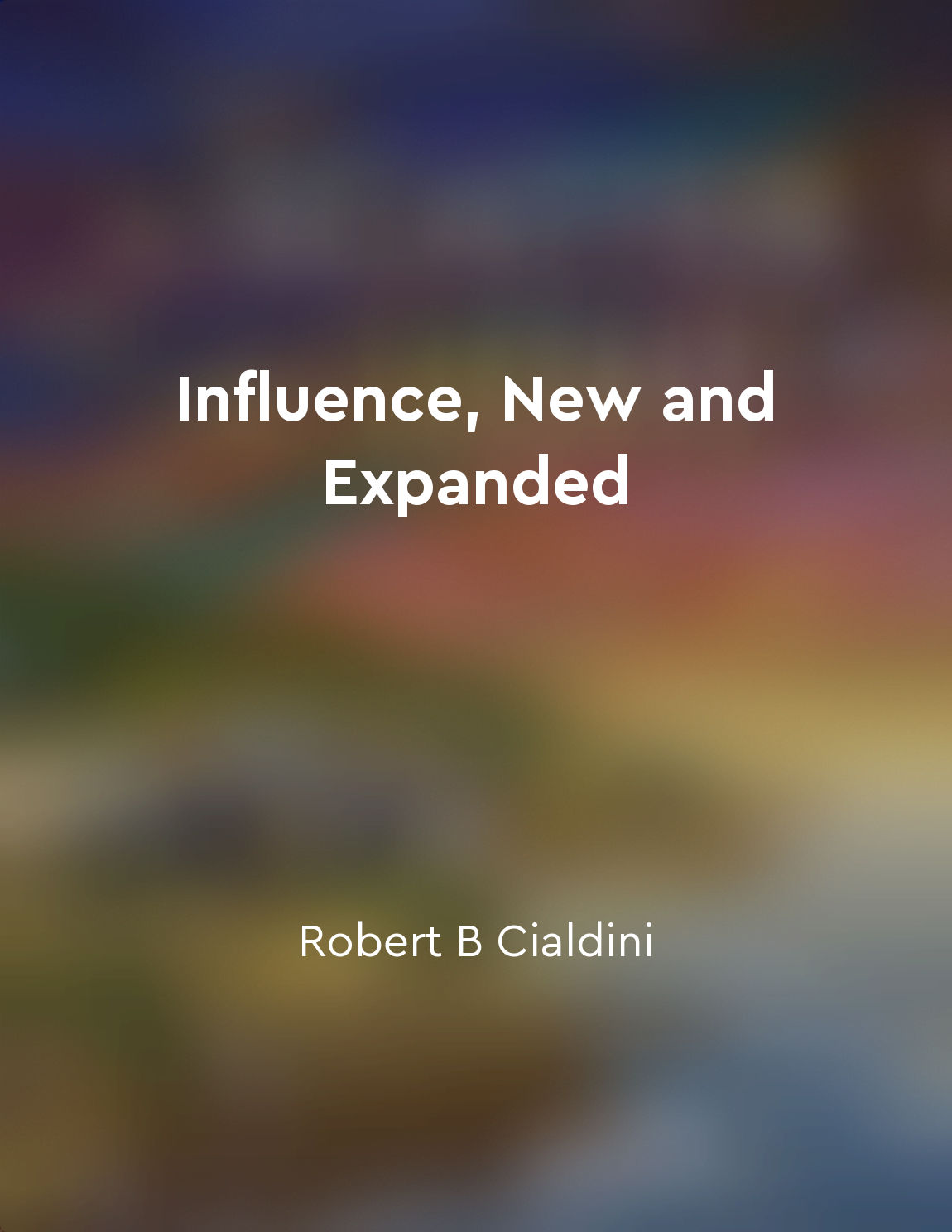Audio available in app
Be genuine in your interactions from "summary" of Os Segredos da Persuasão: Guia definitivo de como influenciar pessoas e conseguir o que quiser by Igor Silva
Genuineness is a vital element in any interaction, particularly when it comes to persuasion. People can usually tell when someone is being insincere or manipulative. It's important to be yourself and communicate honestly with others. This authenticity will build trust and rapport, making it easier to influence and persuade them. When you are genuine in your interactions, you are showing respect for the other person. You are treating them as an equal, not trying to deceive or manipulate them. This approach creates a positive atmosphere and fosters a sense of connection between you and the other person. This connection is essential for successful persuasion. Being genuine also means being transparent about your intentions. If you have a particular goal or outcome in mind, it's important to communicate this openly with the other person. This honesty will help them understand where you are coming from and why you are seeking their cooperation. In addition, being genuine in your interactions means being true to yourself. You should not pretend to be someone you are not or say things you don't believe in order to persuade others. Authenticity is key to building credibility and trust with others.- Being genuine in your interactions is a powerful tool for persuasion. By approaching others with honesty, respect, and transparency, you can build strong relationships and achieve your desired outcomes more effectively. Remember, people respond positively to authenticity, so be yourself and let your true intentions shine through in all your interactions.
Similar Posts
Adaptability is crucial in a rapidly changing world
In a world where change is the only constant, adaptability becomes not just a valuable trait, but a crucial one. The ability to...

Embrace vulnerability as a strength
Vulnerability is often seen as a weakness, something to be hidden or avoided at all costs. However, in reality, vulnerability c...

Reciprocity can foster persuasion
Reciprocity is a powerful tool in the art of persuasion. When we receive something from someone, we feel obligated to repay the...
Nonviolent communication involves expressing feelings and needs
Nonviolent communication is a process that involves expressing our feelings and needs. This method allows us to communicate in ...
Show respect for others' perspectives
Respecting others' perspectives means acknowledging that everyone has their own unique views, beliefs, and experiences that sha...
Utilize subconscious influence tactics
Subconscious influence tactics are powerful tools that can be used to persuade others without them even realizing it. By tappin...
Empowering beliefs and attitudes enhance personal magnetism
Empowering beliefs and attitudes play a crucial role in enhancing personal magnetism. When we believe in ourselves and our abil...

Influence is a skill that can be learned
The idea that influence is a skill that can be learned is a powerful concept that challenges traditional beliefs about persuasi...
Embracing diversity and inclusion leads to innovation and success
In Dare to Lead, Brené Brown discusses how embracing diversity and fostering inclusion within organizations can lead to increas...

Keep conversations light and enjoyable
When engaging in conversations with others, it is important to keep things light and enjoyable. This means avoiding heavy topic...

